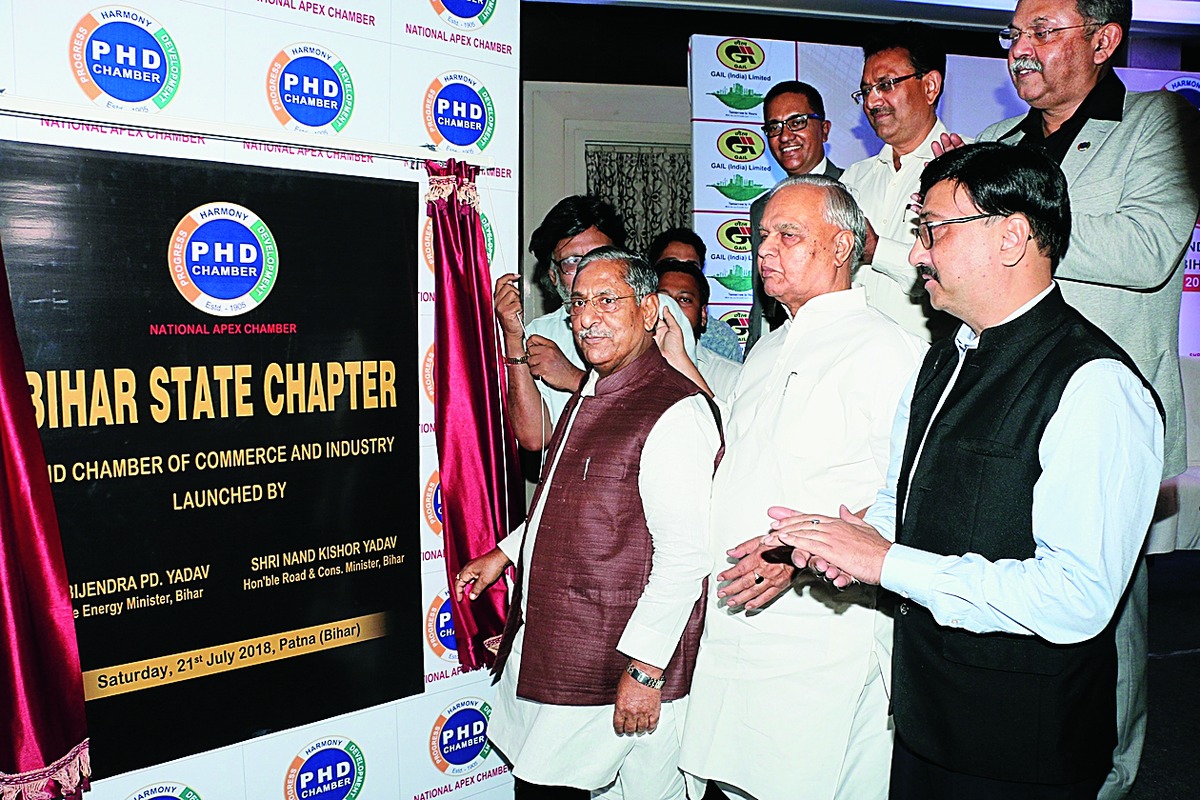
Patna: The industry's perception about Bihar has changed from being a Bimaru to a progressive state owing to significant achievements in infrastructure growth and increase in power availability, road construction minister Nand Kishore Yadav said at the launch of the PHD Chamber of Commerce and Industry (PHDCCI) state chapter on Saturday.
"As per my experience of being born in a business family, infrastructure was one of the biggest hurdles in the way of Bihar's industrial development," said Yadav, while delivering his address in a seminar-cum-panel discussion on "Industrialization from Bihar's perspective: the myths and reality" after the PHDCCI state chapter launch.
"With the game-changing initiatives taken by the government in road connectivity and infrastructure creation, the state has the potential to become an industrial and investment hub in coming years."
Energy minister Bijendra Prasad Yadav said: "Bihar achieved significant progress in power availability. Before 2005, it was 250MW and now, it is over 5,000MW per month. The increase in infrastructural connectivity through rail, road and air will surely bring rich dividends for industrial development of Bihar."
"Our industrial policy aimed at making a conducive environment for businesses in the state. The Bihar government will provide all possible help to those who want to establish their industries."
Anil Khaitan, the president of PHDCCI, said: "There is no lack of scope for industries in Bihar. Our 113-year-old association will work with local industry associations for Bihar's economic development by convincing them to start doing business here and will bring all stakeholders closer to realise the full business potential of the state."
Experts taking part in the panel discussion insisted on adopting cluster-based approach as the most compelling idea for holistic development of commercial enterprises in the state. "We need to focus on developing local level industries with one district-one product approach. There are several products in Bihar such as litchi, mango, maize and makhana, which can earn huge turnover if the government dedicates each district for at least one product," Khaitan said, citing the example of China.
V.M. Jha, the director of the ministry of micro, small and medium industries, said: "Acknowledging the problem of land availability in Bihar, the vertical business model meaning accommodating commercial organisations in skyscrapers will play a crucial role in creating a pro-business ecosystem in the state."
Describing the importance of agro-based food processing industries Jha said "Bihar is primarily an agricultural economy and it is blessed with huge production of food products and manpower availability. If processing would be done in the same place where farmers produce their crops, the cost of products would reduce significantly benefitting the businesses and the consumers. Therefore food processing industry could become a game changer in the development of state's economy.










